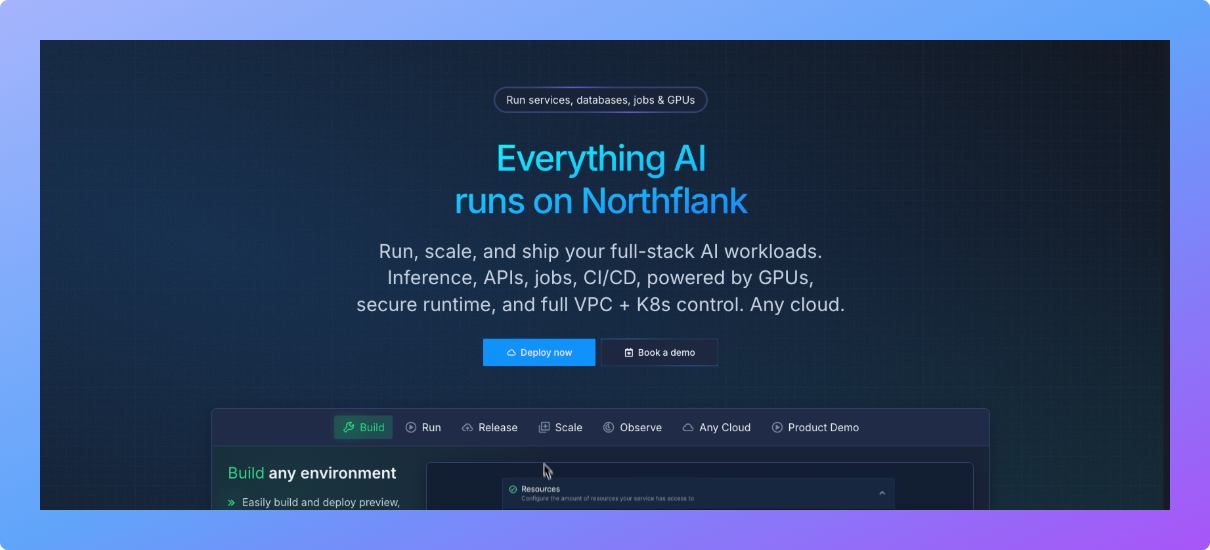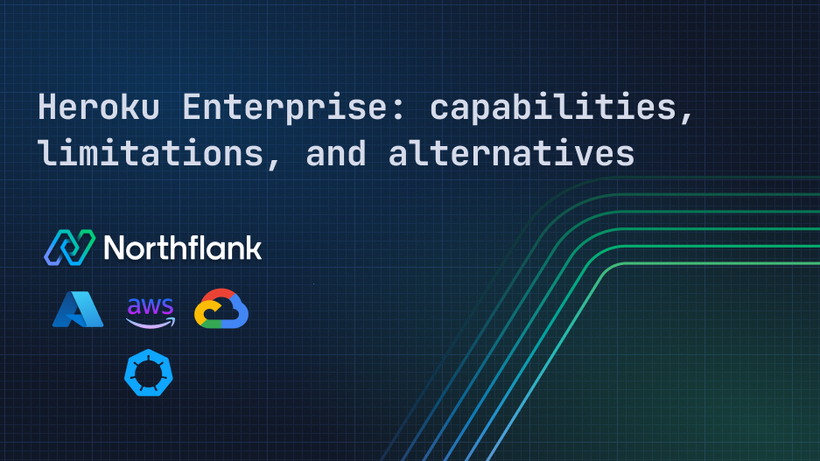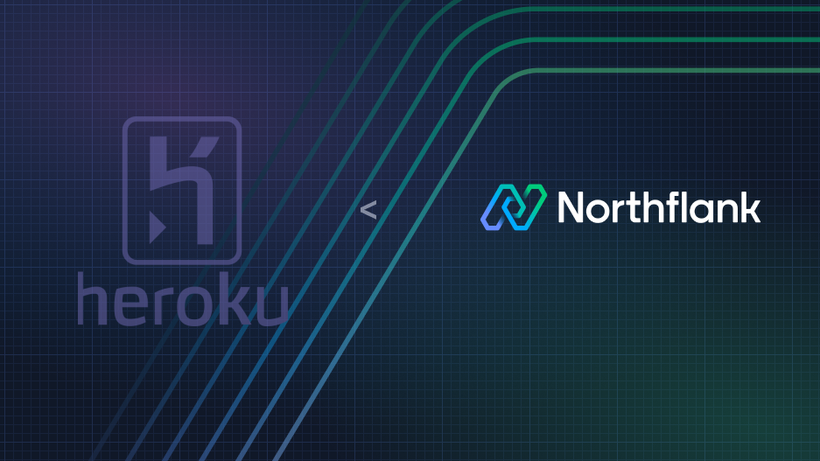

7 Best private cloud hosting platforms in 2026
Running sensitive workloads on public cloud can be risky, expensive, and sometimes restrictive. In 2026, more teams are considering private cloud hosting to reap the benefits of scalability while maintaining tighter control over compliance, security, and costs.
However, with numerous platforms available, ranging from legacy enterprise leaders to modern developer-first options, it’s challenging to know where to begin.
In this guide, we’ll explore seven best private cloud hosting platforms in 2026, what to look for when evaluating options, and how Northflank simplifies private cloud hosting for modern teams building AI-driven and multi-service applications.
If you’re short on time, here’s a quick breakdown of the leading private cloud hosting platforms in 2026 and what makes each stand out:
- Northflank – A full-stack cloud platform with the ability to deploy in your own AWS, GCP, Azure, Oracle, or Civo accounts. Also provides managed Kubernetes, CI/CD, and GPU orchestration while keeping complete control over your data and infrastructure.
- AWS Outposts – Extends AWS infrastructure to your own data center. Deep integration with AWS services, great for regulated industries and enterprises already all-in on AWS.
- Azure Stack Hub – Microsoft’s private cloud offering with strong compliance certifications and hybrid flexibility. Ideal for enterprises running on the Microsoft ecosystem.
- Google Anthos – Kubernetes-based multi-cloud solution with tight GCP and AI/ML integrations. Best for teams needing portability and advanced orchestration.
- Oracle Cloud@Customer – Fully managed, dedicated private cloud deployed in your own data center. Strong choice for finance, healthcare, and workloads tied to Oracle databases.
- IBM Cloud Private – Enterprise-ready private cloud with deep analytics and AI integrations. Suited for legacy modernization and compliance-heavy industries.
- Civo Private Cloud – Developer-first managed Kubernetes platform, cost-effective and straightforward. Great for startups and teams that want a private cloud without hyperscaler complexity.
At a glance, most platforms either lean heavily toward enterprise lock-in or strip things down to basics. Northflank sits in the middle ground, full-stack power without the overhead, making it the go-to private cloud hosting platformfor teams who want to move fast without losing control.
Deploy in your own private cloud without infrastructure complexity → Try Northflank
At its core, a private cloud is cloud infrastructure that you don’t share. Unlike the public cloud, where your workloads run alongside thousands of others, a private cloud is reserved for a single organization.
Private cloud hosting builds on this idea. It means running applications, databases, and services on infrastructure that is dedicated entirely to you. That infrastructure might live in your own data center, be managed by a hosting provider, or sit in a hybrid setup that blends public and private resources.
Today, private cloud hosting usually takes three main forms:
- On-premises private cloud, where you run and manage everything in your own facilities.
- Hosted private cloud, where a provider manages the physical infrastructure but dedicates it fully to you.
- Hybrid private cloud, which combines public cloud scale with private resources for sensitive or regulated workloads.
The appeal is consistent: more control, stronger compliance, and infrastructure tailored to your needs—without giving up the flexibility and scale of the cloud.
Earlier, we looked at why teams are moving to private cloud for control and compliance, but the real challenge is finding a platform that matches where your business is headed. The best options go beyond hardware, giving you flexibility, speed, and visibility.
Here are the key factors to weigh in 2026:
- Multi-cloud flexibility: Avoid lock-in. The best platforms run across AWS, Azure, GCP, Oracle, or even bare metal so you’re never stuck with one vendor.
- Developer-friendly experience: Private cloud shouldn’t feel like a step back. Look for fast feedback loops, clean logs, and workflows that scale from local dev to production.
- AI & ML readiness: First-class GPU support, model APIs, and job scheduling should be built in. Your platform must evolve with modern workloads.
- Effortless scalability: Growth shouldn’t require Kubernetes expertise. Select solutions that offer autoscaling and failover capabilities out of the box, with the flexibility to customize.
- Integrated tooling: Native CI/CD, GitOps, secrets, monitoring, and IaC save you from glue code and speed up shipping.
- Transparent costs: Clear usage-based pricing and built-in cost visibility ensure ROI and no surprises at billing time.
- Security & compliance: RBAC, audit logs, encryption, and certifications (SOC 2, HIPAA, GDPR) should be defaults, not extras.
- Operational maturity: Look for proven SLAs, monitoring, rollback, and responsive support. Invisible when smooth, essential when things break.
In this section, we’ll break down the leading private cloud hosting platforms in 2026. You’ll see how each one approaches scalability, compliance, and developer experience. Some are designed for enterprises with strict regulations, while others provide modern teams with speed and flexibility.
Northflank combines private cloud hosting with developer-friendly orchestration. It's designed for teams building AI-driven or multi-service applications that want to deploy in their own cloud accounts without dealing with Kubernetes complexity.

What Northflank offers:
- Run full workloads: APIs, databases, background workers, notebooks, GPU jobs
- Built-in CI/CD pipelines, GitOps, and job scheduling
- GPU orchestration for inference, fine-tuning, and model APIs
- BYOC (Bring Your Own Cloud) or provision GPUs directly through Northflank
- Security features like RBAC, audit logs, and private clusters
When to choose Northflank:
Choose this for private cloud hosting that gives you control over your infrastructure and data while simplifying Kubernetes complexity. Best for teams wanting secure, compliant deployments in their own cloud accounts without requiring deep DevOps expertise.
For enterprises already deep in AWS, Outposts brings the same services you’d find in the public cloud directly to your private data center. That means you can run EC2, S3, and RDS locally with the same APIs and tools.
Best for: highly regulated industries like healthcare and finance that need on-prem while staying inside AWS’s ecosystem.
Considerations: vendor lock-in and premium pricing, you’re all-in on AWS if you choose this route.
If your organization heavily relies on Microsoft technology, Azure Stack is the natural extension of your environment. It enables you to run Azure services in your own facilities while maintaining tight integration with Microsoft 365, Active Directory, and compliance frameworks.
Best for: enterprises that are already standardized on Microsoft tools.
Considerations: Heavier operational requirements compared to lighter platforms, like Northflank.
Google’s Anthos-powered private cloud puts Kubernetes at the center. It’s ideal if your team wants multi-cloud flexibility and is comfortable working with containers. Tight integration with GCP also makes it attractive for AI/ML workloads.
Best for: teams that want portability across AWS, Azure, GCP, or on-prem hardware.
Considerations: a steeper learning curve if you’re not already Kubernetes-savvy.
Oracle brings its cloud to your data center with Cloud@Customer. It’s essentially Oracle’s public cloud—but dedicated to your business. That means full database support, security, and compliance for industries like finance and government.
Best for: Oracle-first organizations that rely on its database ecosystem.
Considerations: heavy Oracle integration; less flexible if you’re not already invested.
Civo is all about simplicity. It strips away hyperscaler complexity and offers a fast, cost-effective managed Kubernetes experience, tailored for teams that don’t want to babysit infrastructure.
Best for: startups and developer teams who want a private cloud without the enterprise bloat.
Considerations: smaller ecosystem and fewer advanced enterprise features compared to AWS or Azure.
VMware has been the backbone of private infrastructure for decades, and Cloud Foundation modernizes that legacy for the hybrid cloud era. It’s virtualization-first, but with extensions for containers and cloud-native workloads.
Best for: enterprises modernizing legacy VMware investments while exploring hybrid approaches.
Considerations: slower iteration compared to developer-first platforms like Northflank or Civo.
Bottom line: Most private cloud platforms either tilt toward enterprise lock-in (AWS, Oracle, VMware) or developer simplicity (Civo). Northflank bridges the gap, giving modern teams the power to run full-stack applications and AI workloads with the flexibility of a private cloud without the Kubernetes headaches.
Once you’ve seen what each platform offers, the next step is deciding which one actually fits your team. The right choice depends on your workloads, priorities, and the level of flexibility you’ll need as you grow.
| Platform | Best for | Strengths | Considerations |
|---|---|---|---|
| Northflank | Modern dev teams, Developer-first K8s & AI & ML | Bring your own cloud (BYOC), GPU support, multi-service apps, simple UX | Less known than hyperscalers |
| AWS Outposts | Enterprises deep in AWS | Seamless AWS APIs, hybrid extension | Vendor lock-in, high cost |
| Azure Stack | Microsoft-first organizations | Strong integration with MS ecosystem | Heavier ops requirements |
| Google Distributed Cloud | Kubernetes-native teams | Multi-cloud, Anthos integration | Steeper learning curve |
| Oracle Cloud@Customer | Regulated industries | Fully managed Oracle stack on-prem | Oracle-first tooling |
| Civo | Developer-first K8s users | Lightweight managed Kubernetes | Smaller ecosystem |
| VMware Cloud Foundation | Legacy enterprises | Proven virtualization, hybrid model | Complexity, slower iteration |
Private cloud has moved beyond being a tool for large enterprises. In 2026, it is the pragmatic choice for teams that need to balance compliance, security, and cost control with the flexibility of cloud infrastructure.
The platforms we reviewed each serve a different audience. Some are built for enterprises deeply tied to a single vendor, while others focus on developers who want simplicity above all else.
Northflank brings the best of both worlds. It combines the reliability and control of enterprise-grade private cloud with the speed and usability that modern development teams expect. With built-in CI/CD, GitOps, GPU orchestration, and multi-service application support, Northflank makes private cloud practical for startups and scalable for enterprises. I
If your team is looking for a private cloud platform that does not slow you down, Northflank is the one to watch.
Try Northflank or book a demo to see how it fits your stack.

